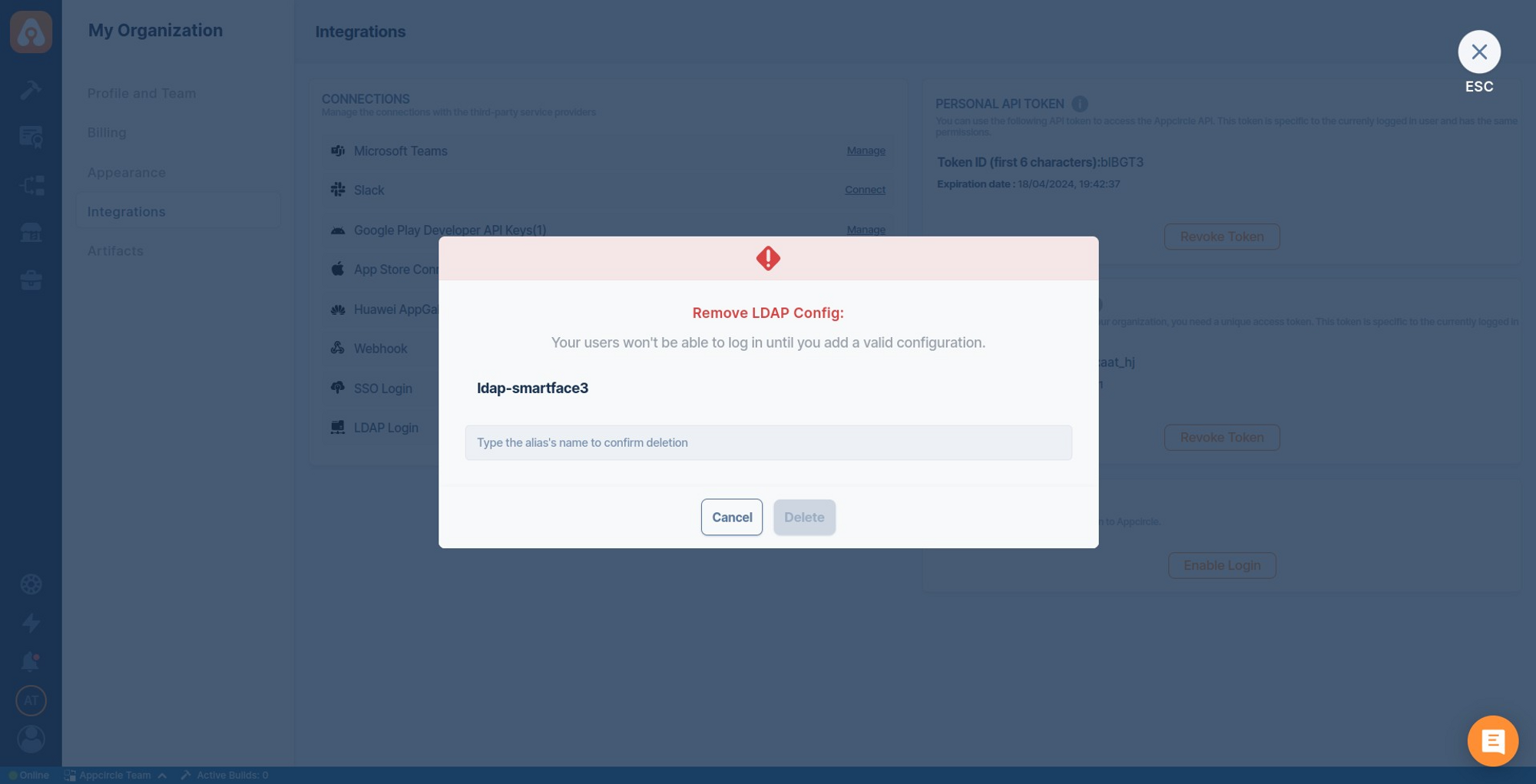Enterprise Portal LDAP Settings
This document serves as a helpful guide for setting up and managing LDAP (Lightweight Directory Access Protocol) login integration within our organizational system. Whether you're new to LDAP or looking to streamline your authentication process, this document provides step-by-step instructions to ensure a smooth setup and management experience.
To get started, simply navigate to the Security page within our platform and click on the "Add New" button next to LDAP Login under the Authentications section. From there, you'll be guided through the process of creating LDAP configurations, including filling in the necessary details and enabling Two Factor Authentication (2FA) for added security.
Cloud Appcircle supports only email 2FA method, while the self-hosted Appcircle installation using Docker/Podman supports both email and SMS 2FA methods.
Similar to the cloud, the self-hosted Appcircle installation using the Helm chart also does not support SMS 2FA method for now.
The SMS 2FA method on Docker/Podman-based self-hosted Appcircle requires a custom integration with your SMS service. Please contact us for further details.
Once set up, LDAP Login allows you to control access to distributed links and adjust distribution authorization through the Distribution Profiles. This means you can tailor access permissions according to your organization's specific needs.
If you ever need to remove LDAP Login integration, the document also provides clear instructions for doing so, ensuring that your system remains secure and up-to-date.
To start, go to My Organization > Security screen and press the Add New button next to LDAP Login under the Authentications section.
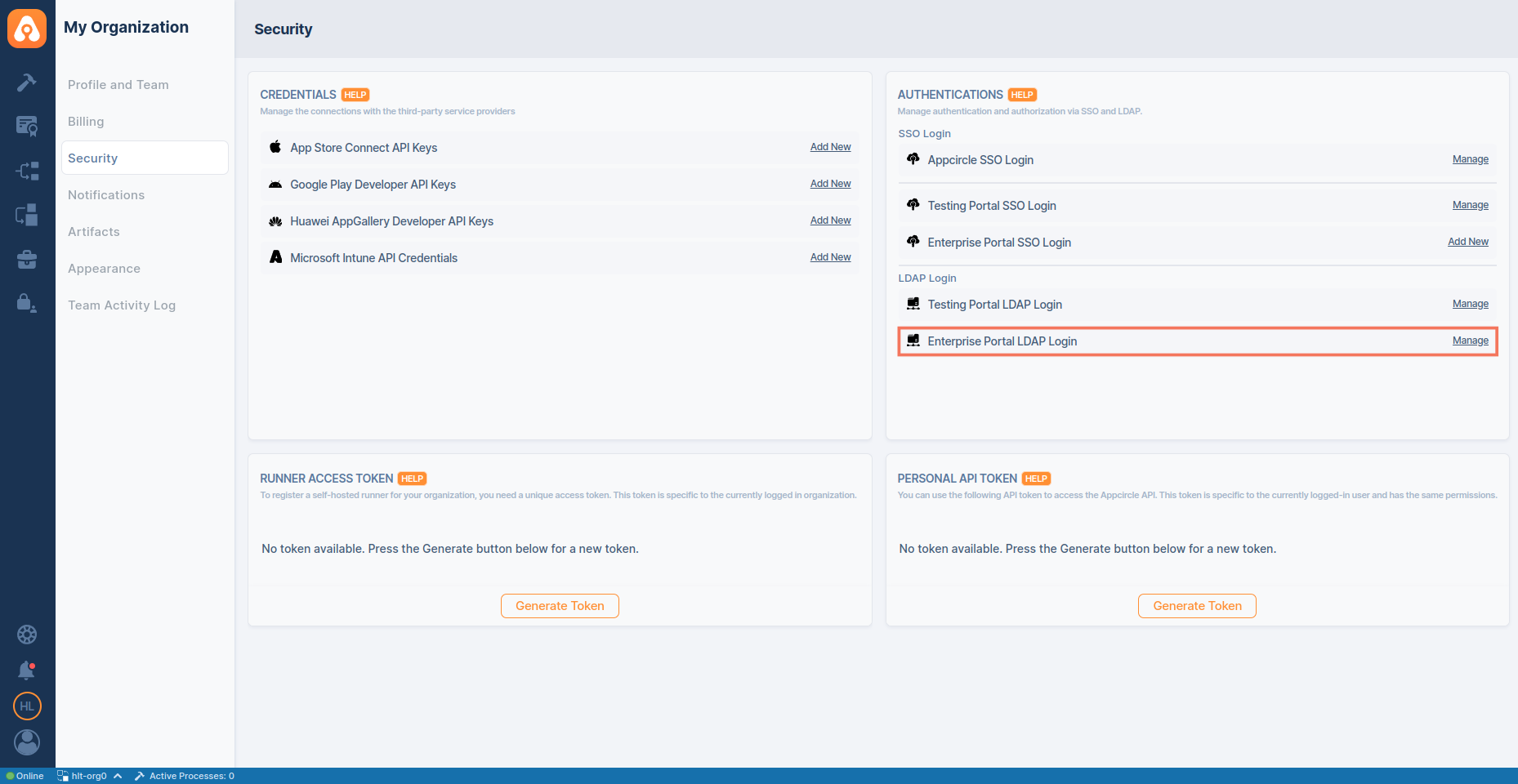
-
The Manage Testing Portal LDAP Login window will open, click Create New Authentication button.
-
The Create New Authentication window will open, presenting two options:
- Create New Authentication
- Create From Existing Authentication You can create a new configuration or create one from an existing configuration. Click on the Create New Authentication section to create new configuration. Please refer the Create From Existing LDAP Configuration.
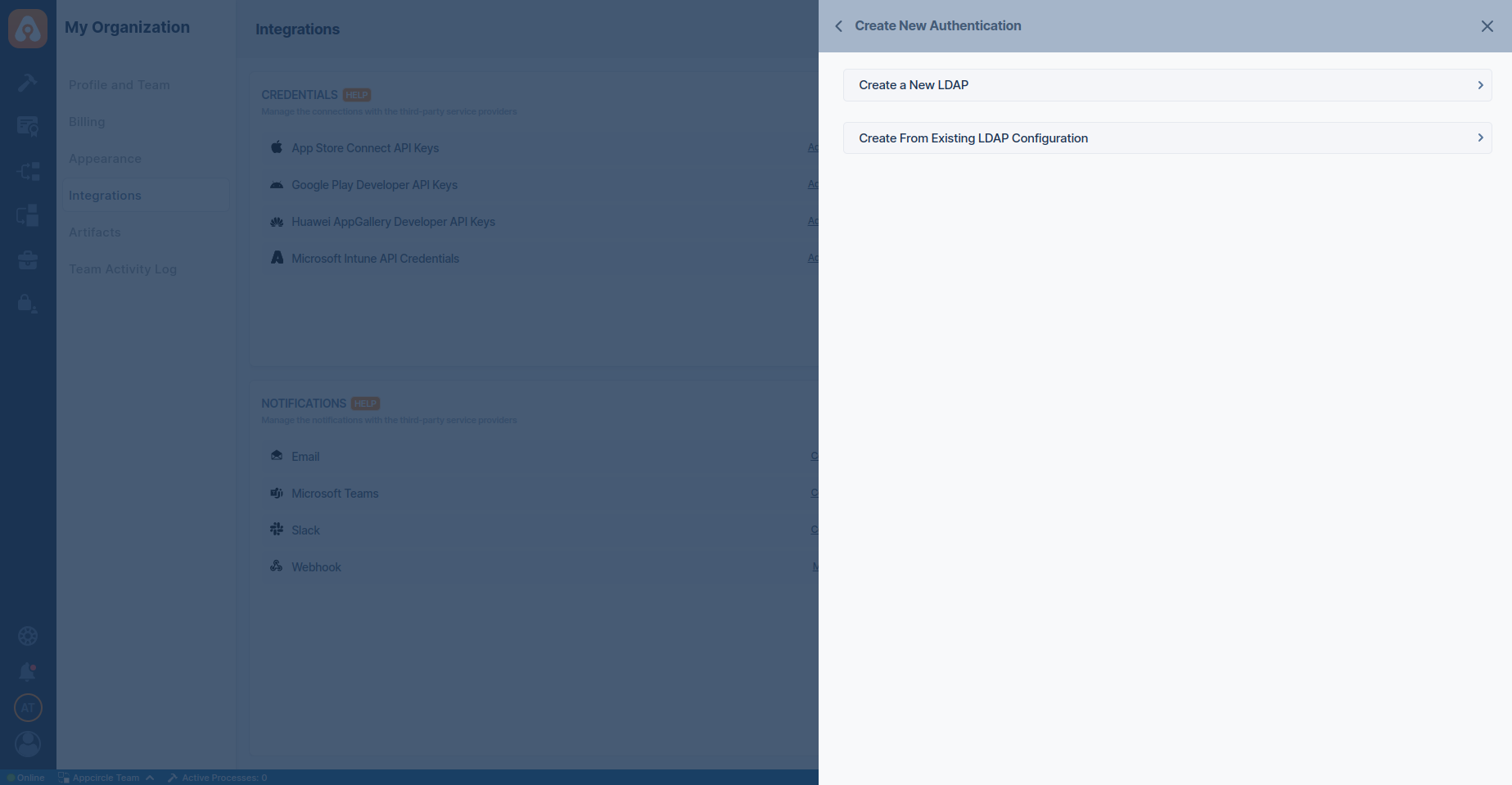
- Fill in the details of your LDAP Configurations
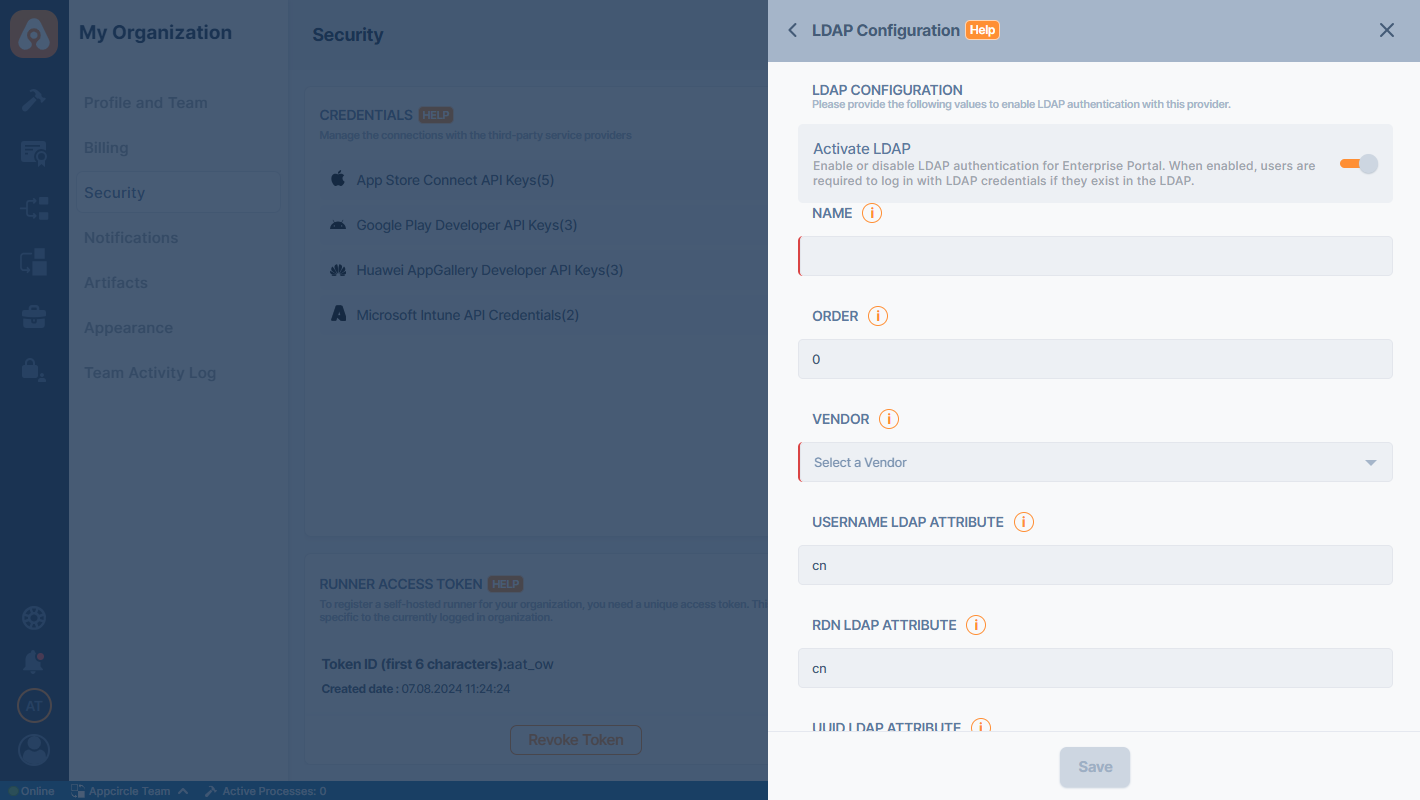
- You can see that the Connect button has changed to the Manage button.
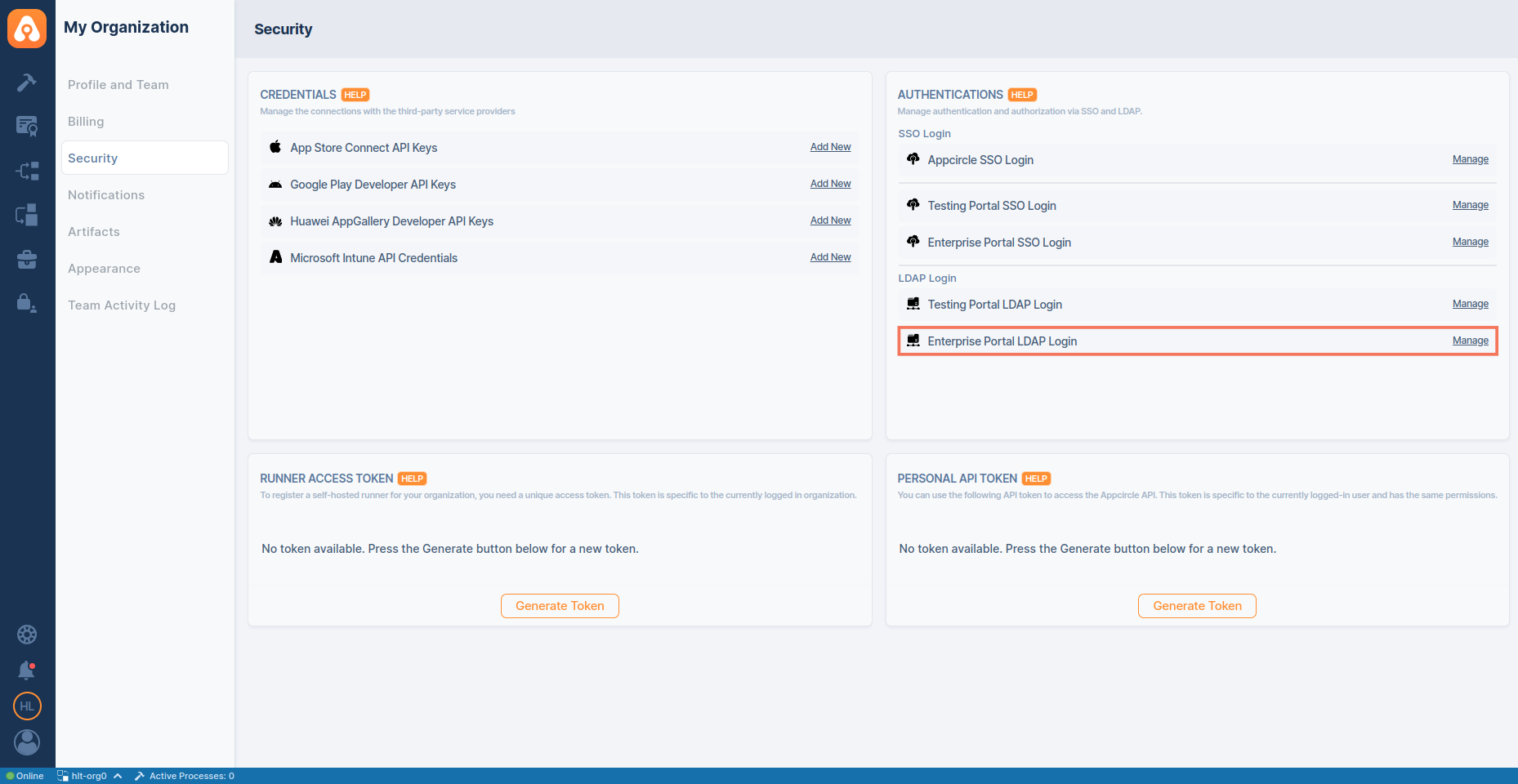
- To access the LDAP integration settings, click the "Manage" button of the "LDAP Login". Then, click Manage Authentication button and select the "Edit" button of the existing LDAP provider.
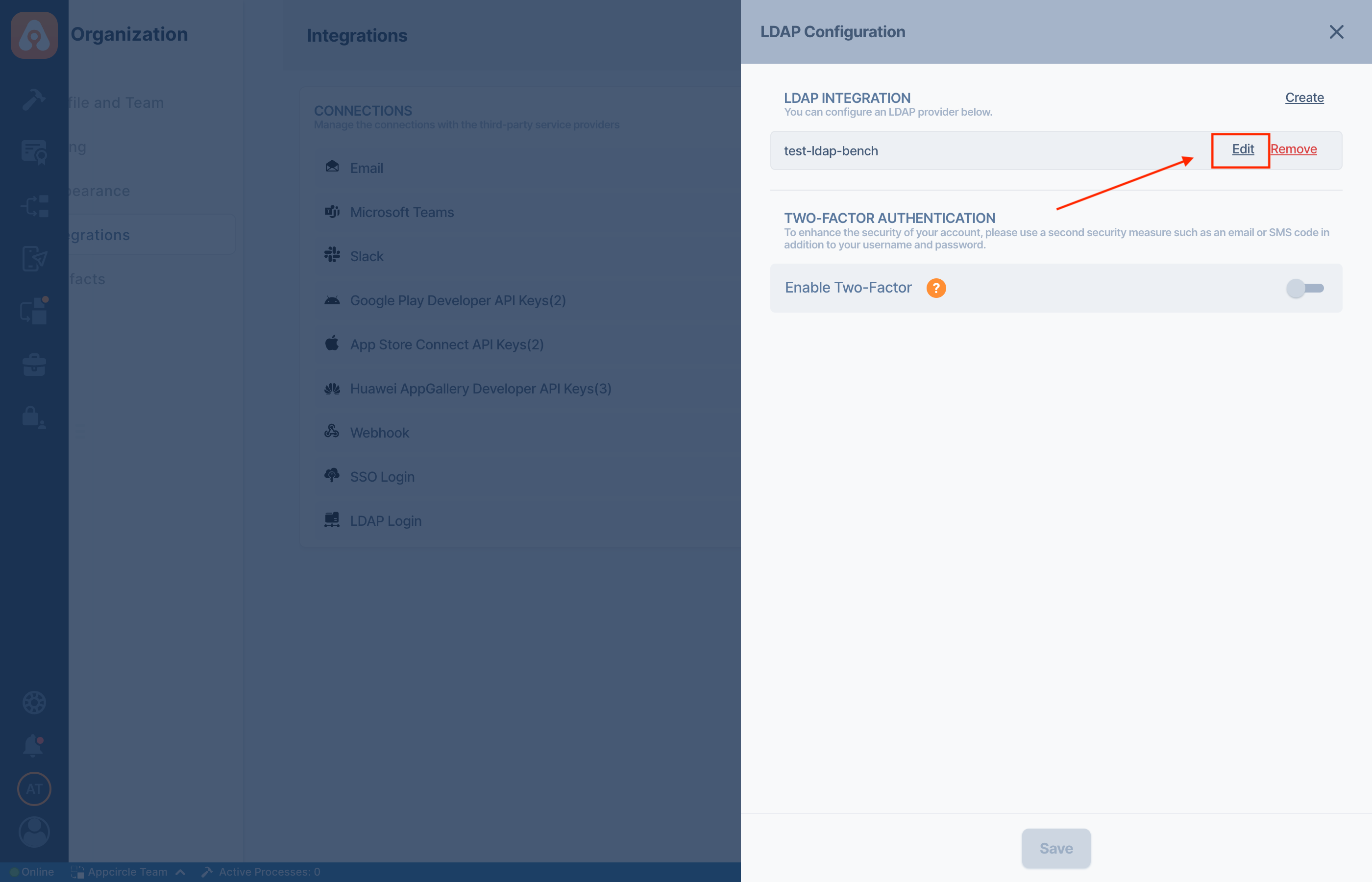
- The "Order" field in your LDAP configuration determines the priority or sequence in which providers are utilized when conducting a user lookup. Providers are entities responsible for retrieving user information from LDAP servers. Specifying the order allows you to prioritize certain providers over others, ensuring efficient user lookup operations.
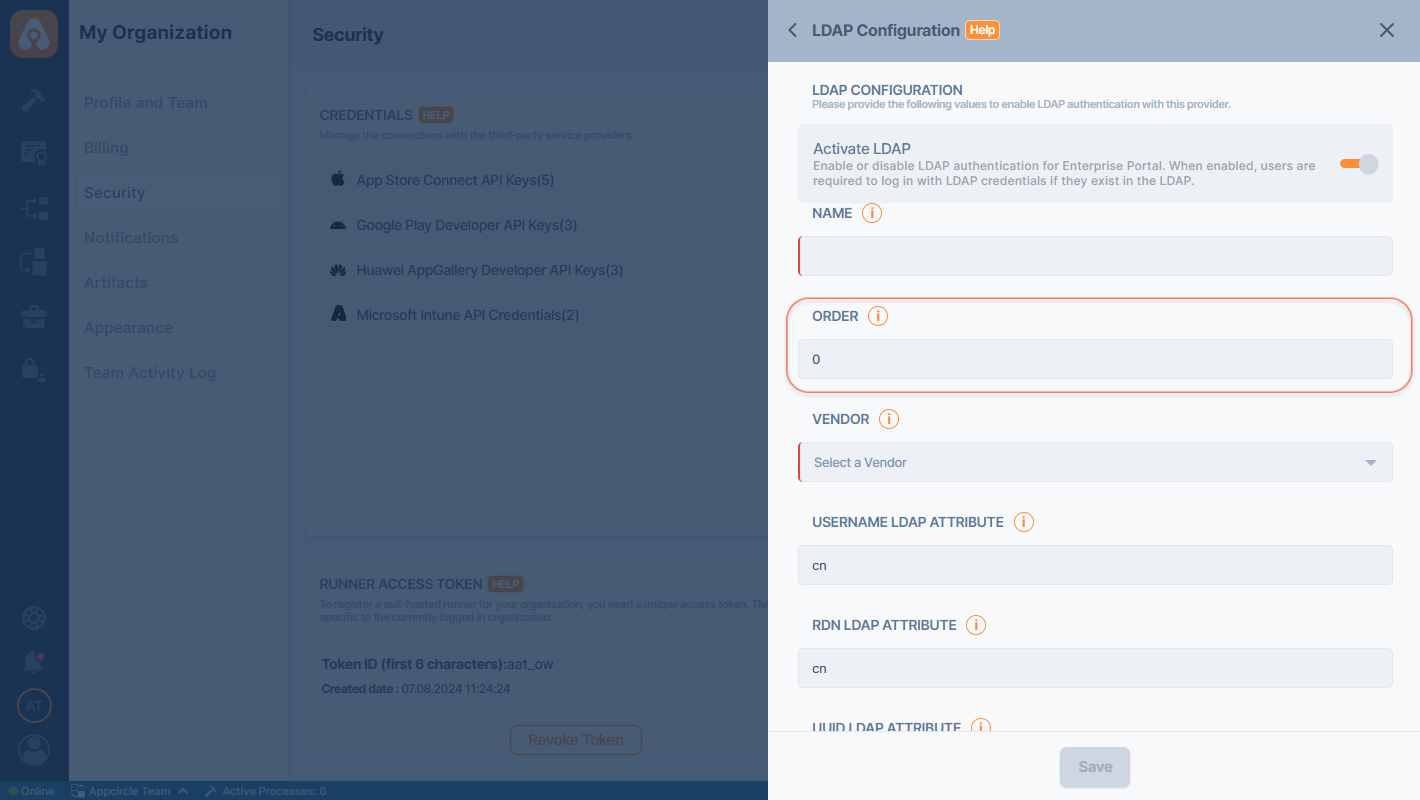
Provider A: Order: 1
Provider B: Order: 2
In this example, when conducting a user lookup, Appcircle will first attempt to retrieve information from "Provider A" before falling back to "Provider B".
- The "Connection Pooling" option in your LDAP configuration determines whether Appcircle should utilize connection pooling for accessing the LDAP server.
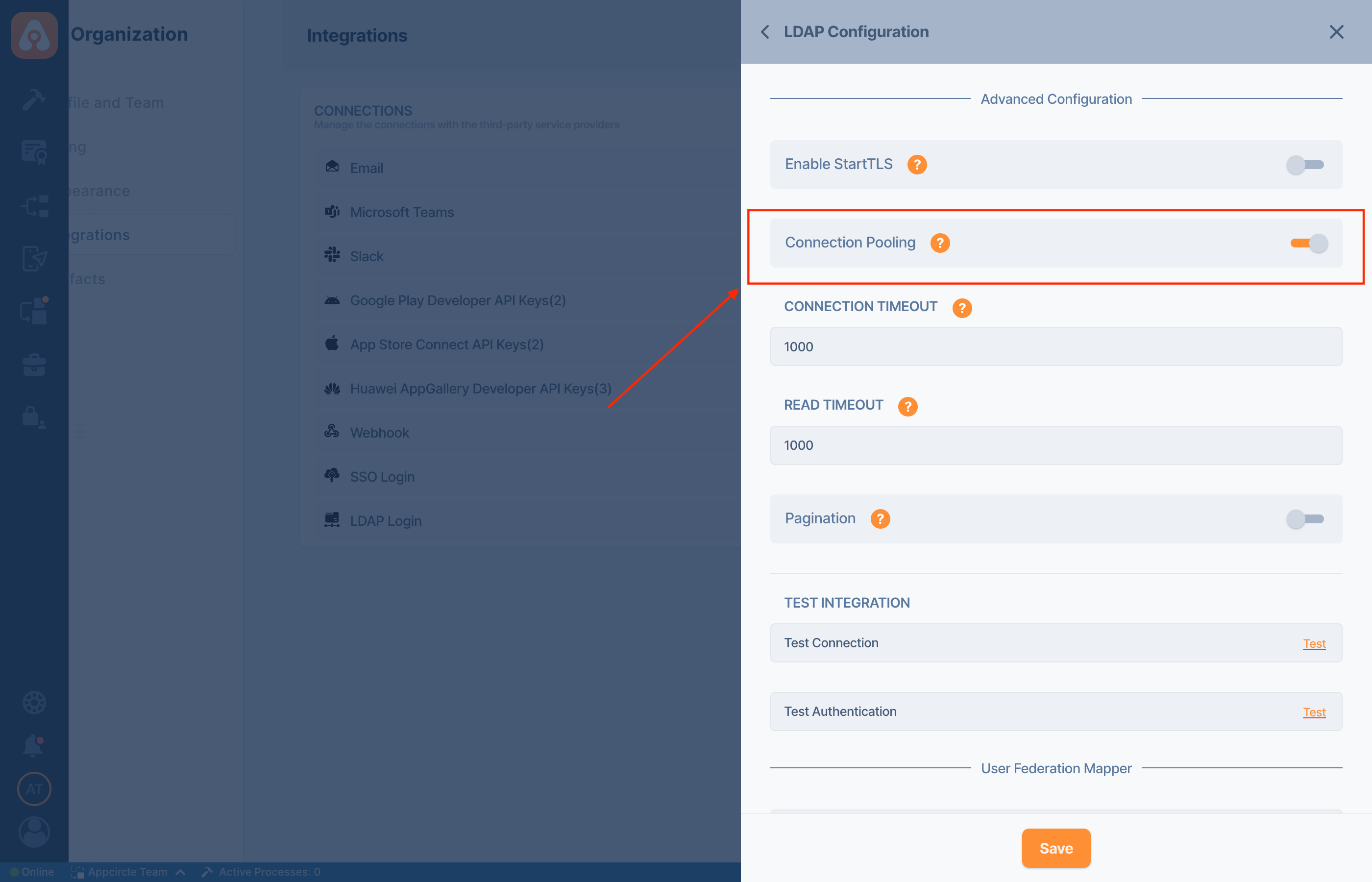
- To enable Two Factor Authentication, open it by clicking the Manage button and select the verification method.
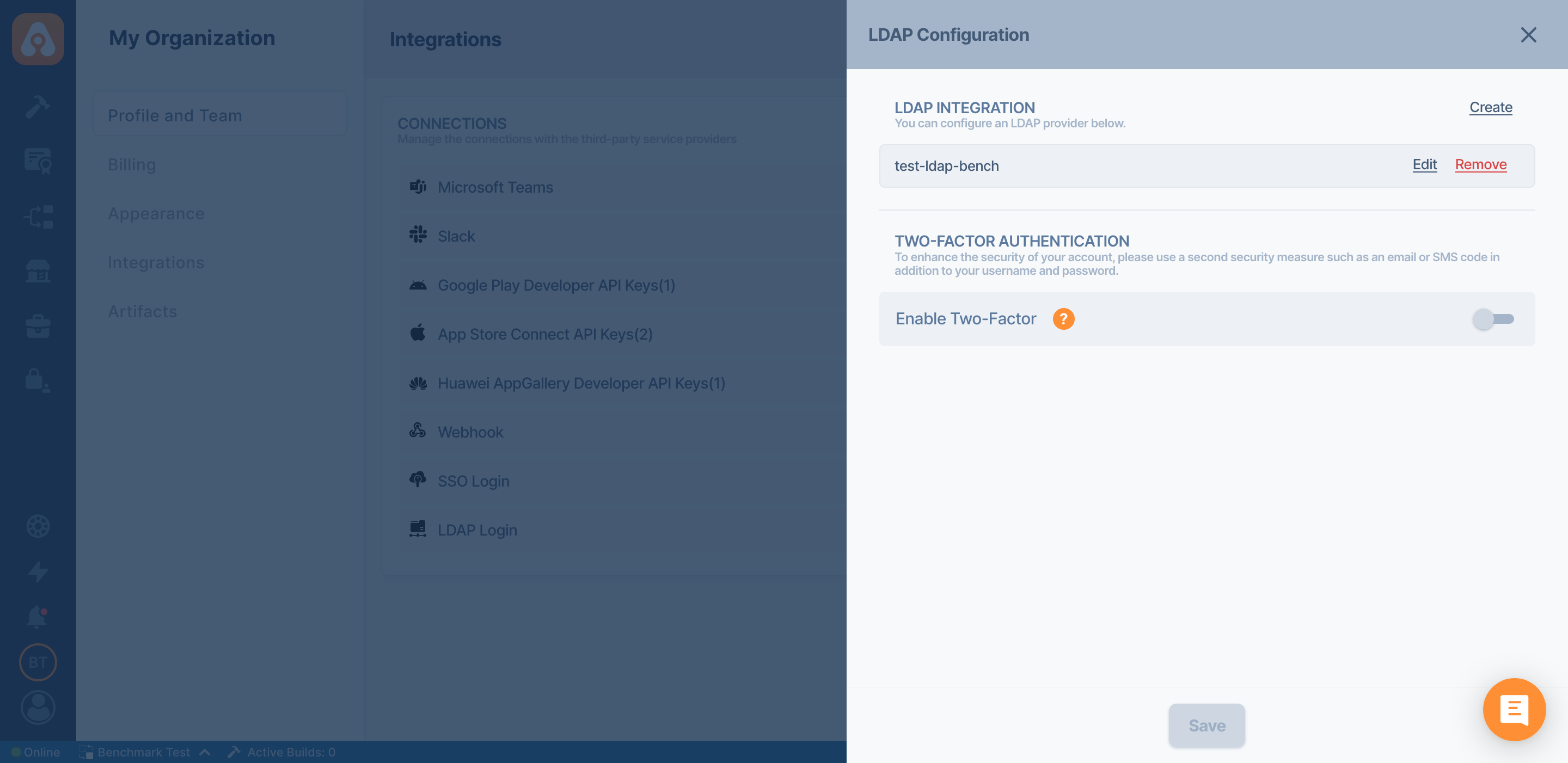
- To change the distribution authorization go to Distribution Profiles screen and press the your distribution profile click Settings button and under the Authentication tab you should see LDAP Login. Convert LDAP Login to on.
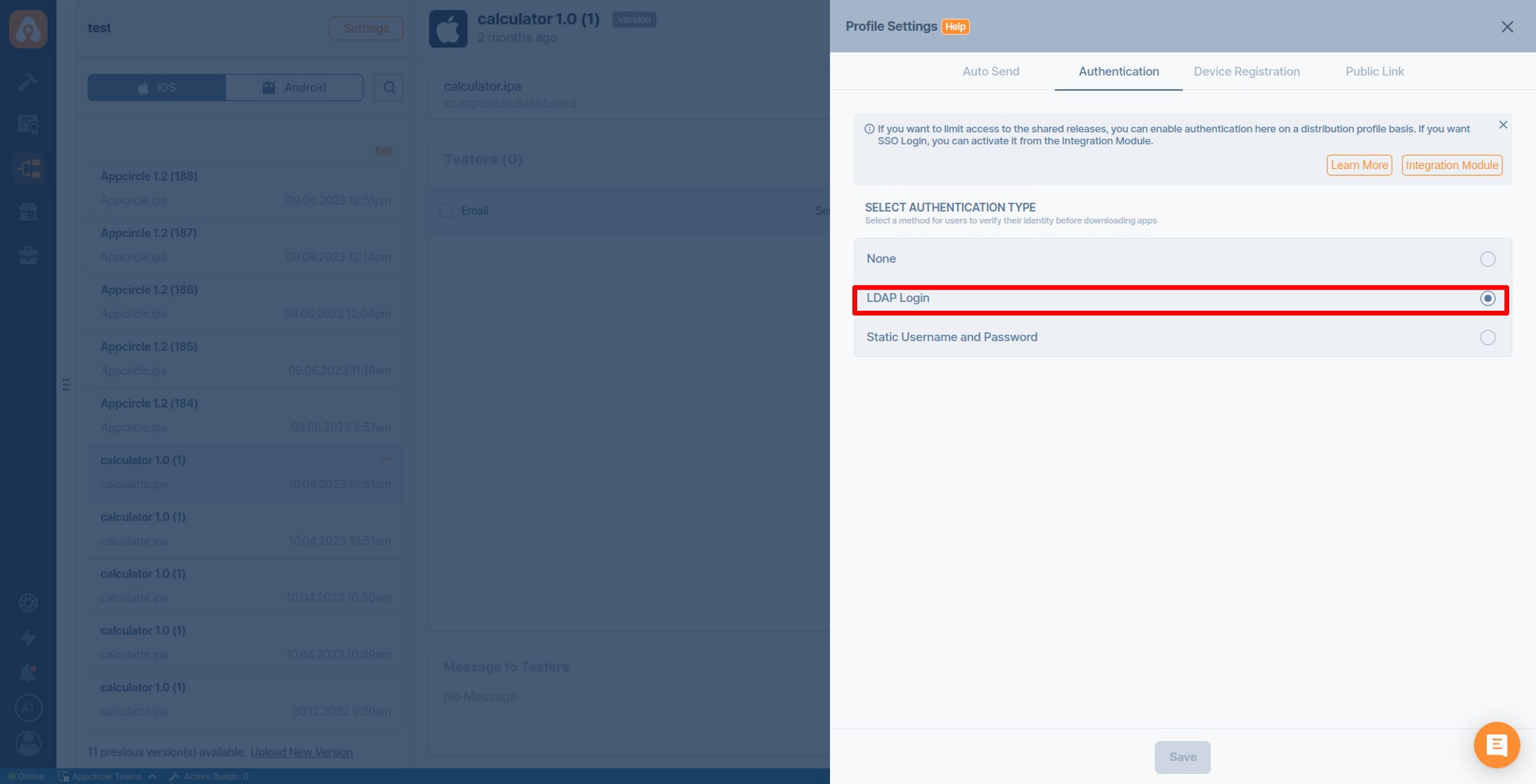
- After this step, it will be necessary to log in from the LDAP Login screen to access the distributed links.
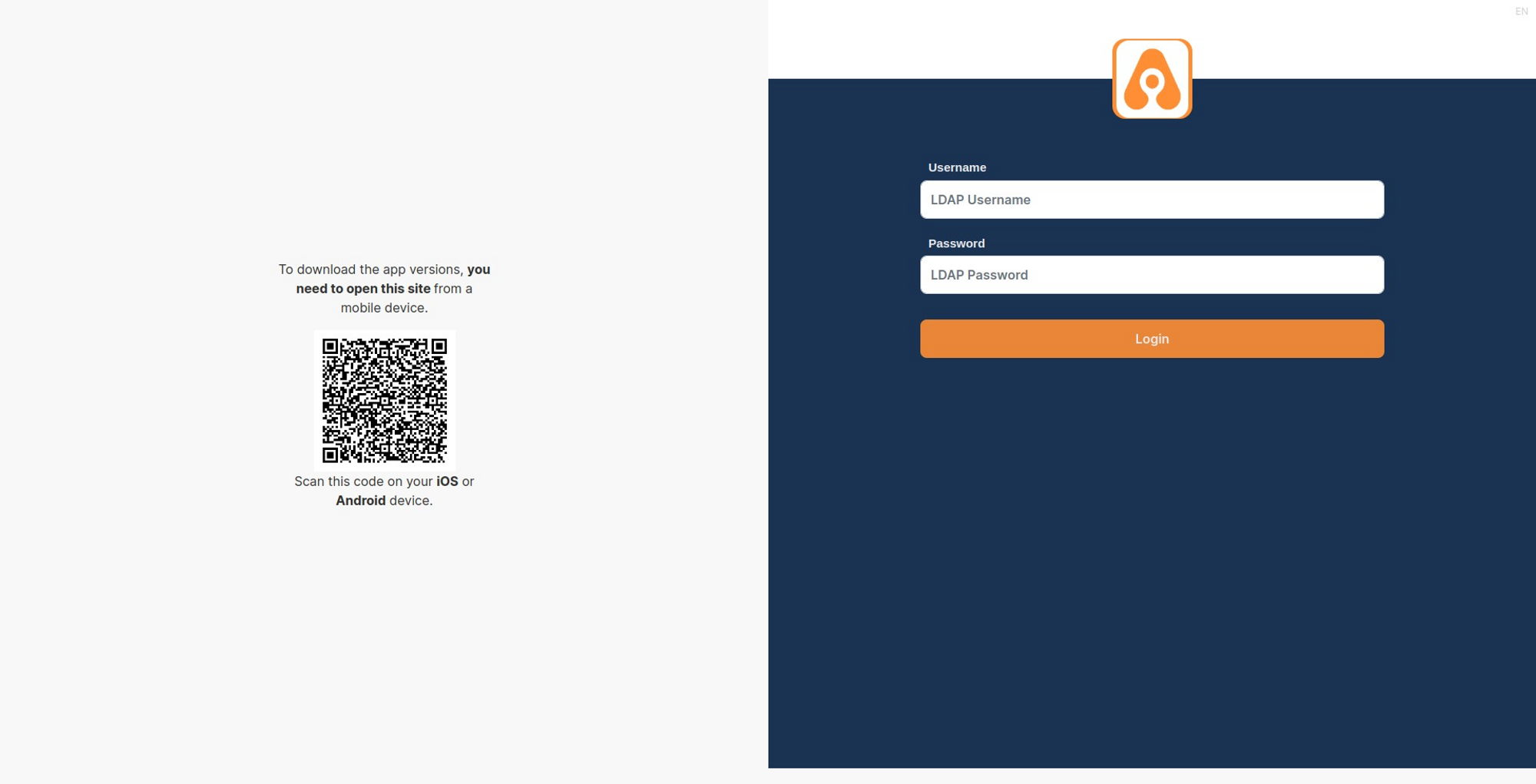
- You must verify according to the method you have chosen.
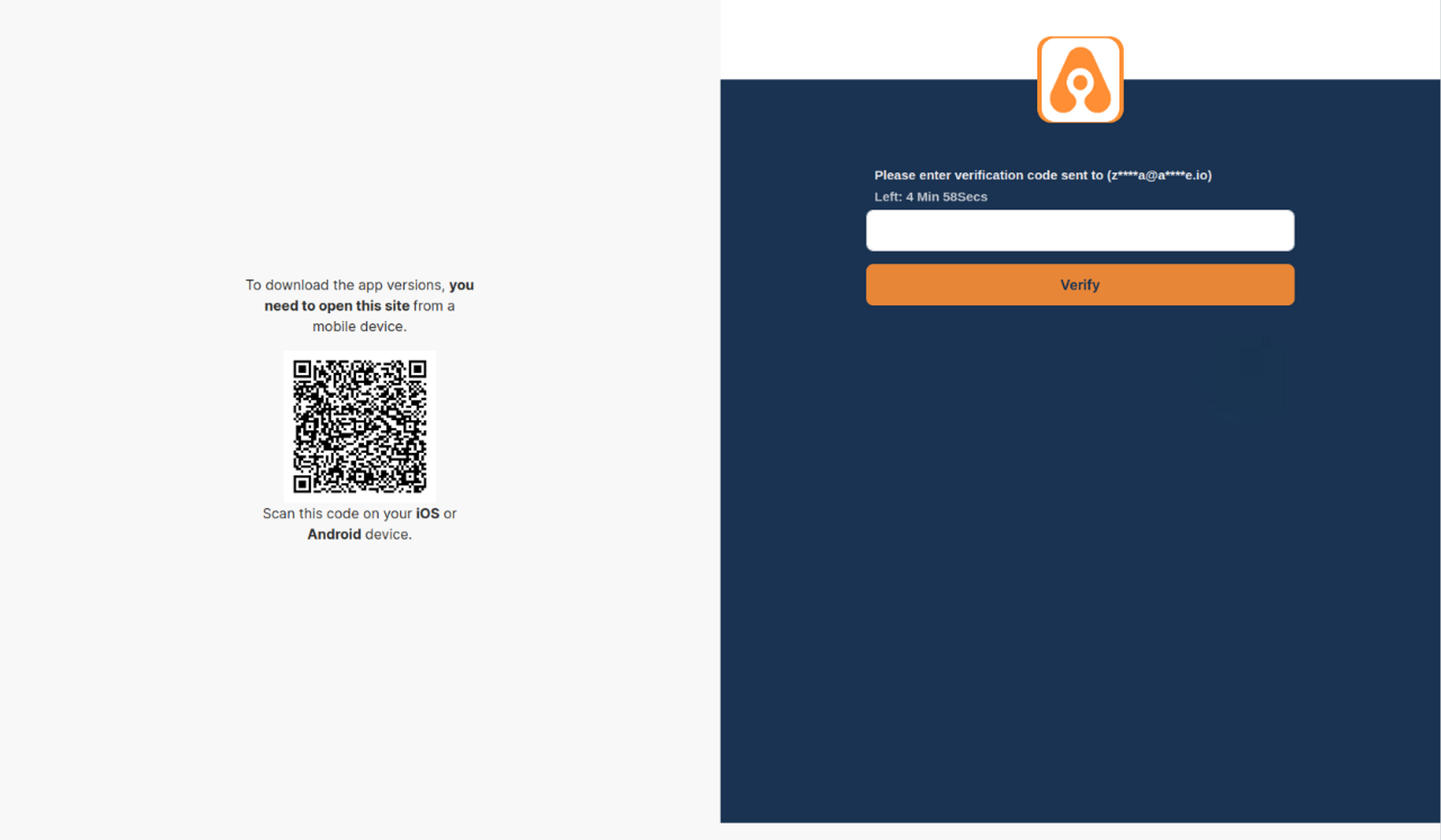
- If the login is successful, a screen similar to the one below will appear.
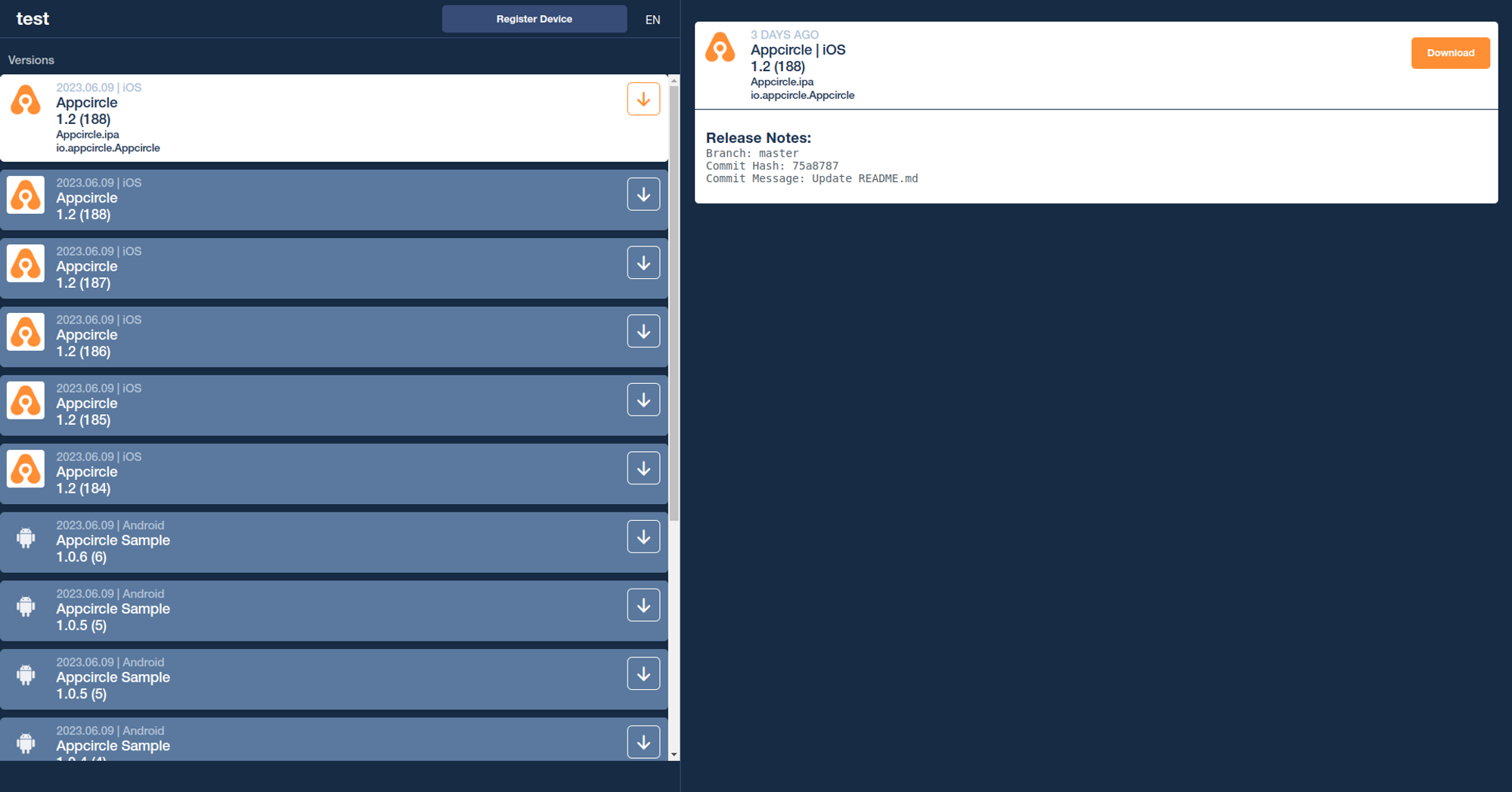
Create From Existing LDAP Configuration
Appcircle allows you to create a new SSO configuration based on an existing one, ensuring a smooth and efficient setup experience.
- Navigate to the Organization > Security > Authentications section on your dashboard.
- Select the Add New on the Enterprise Portal LDAP Login.
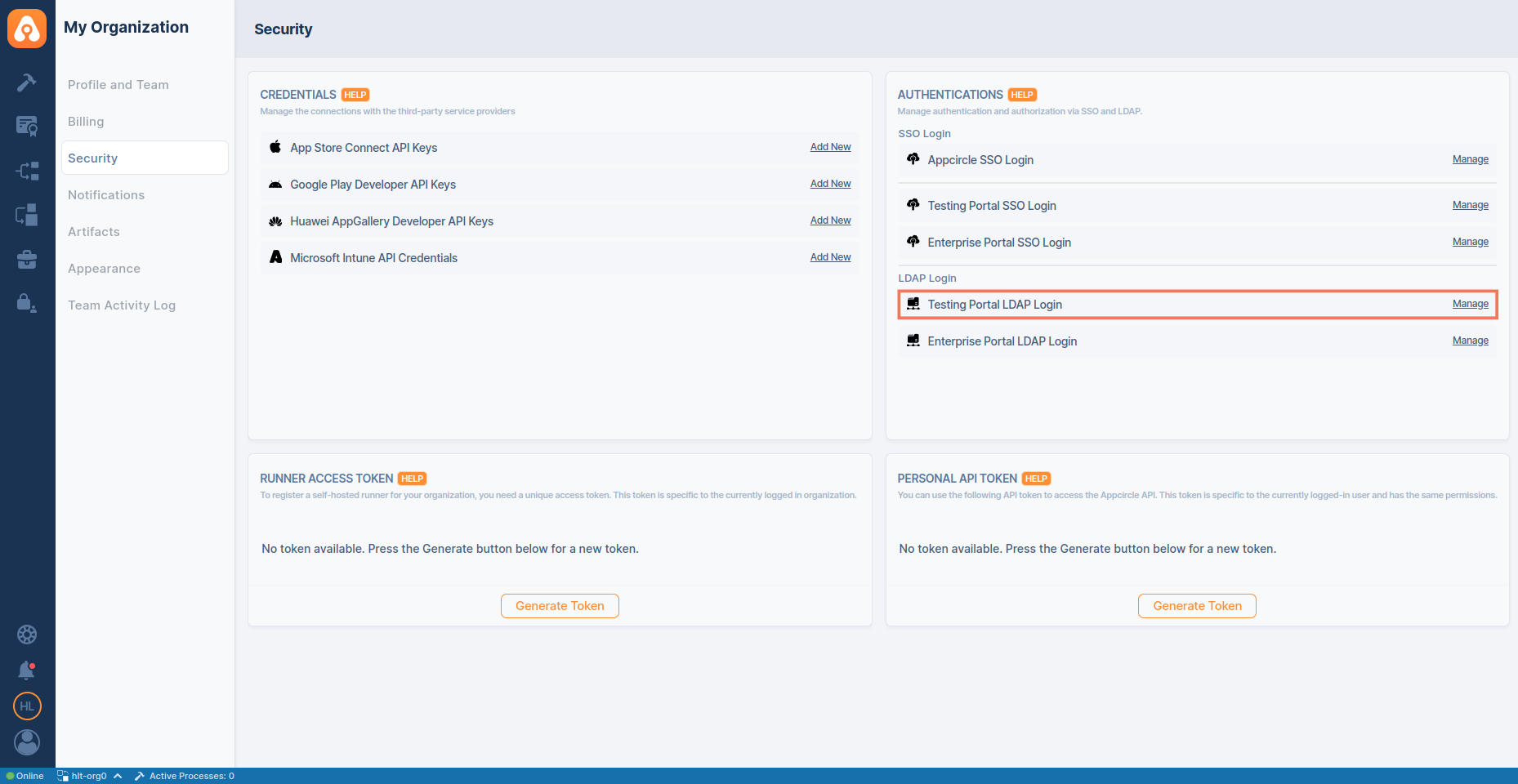
- Select the Create New Authentication and then select the Create From Existing Configuration.
Existing LDAP configurations will be listed on the screen. Select one, and click on Next to proceed.
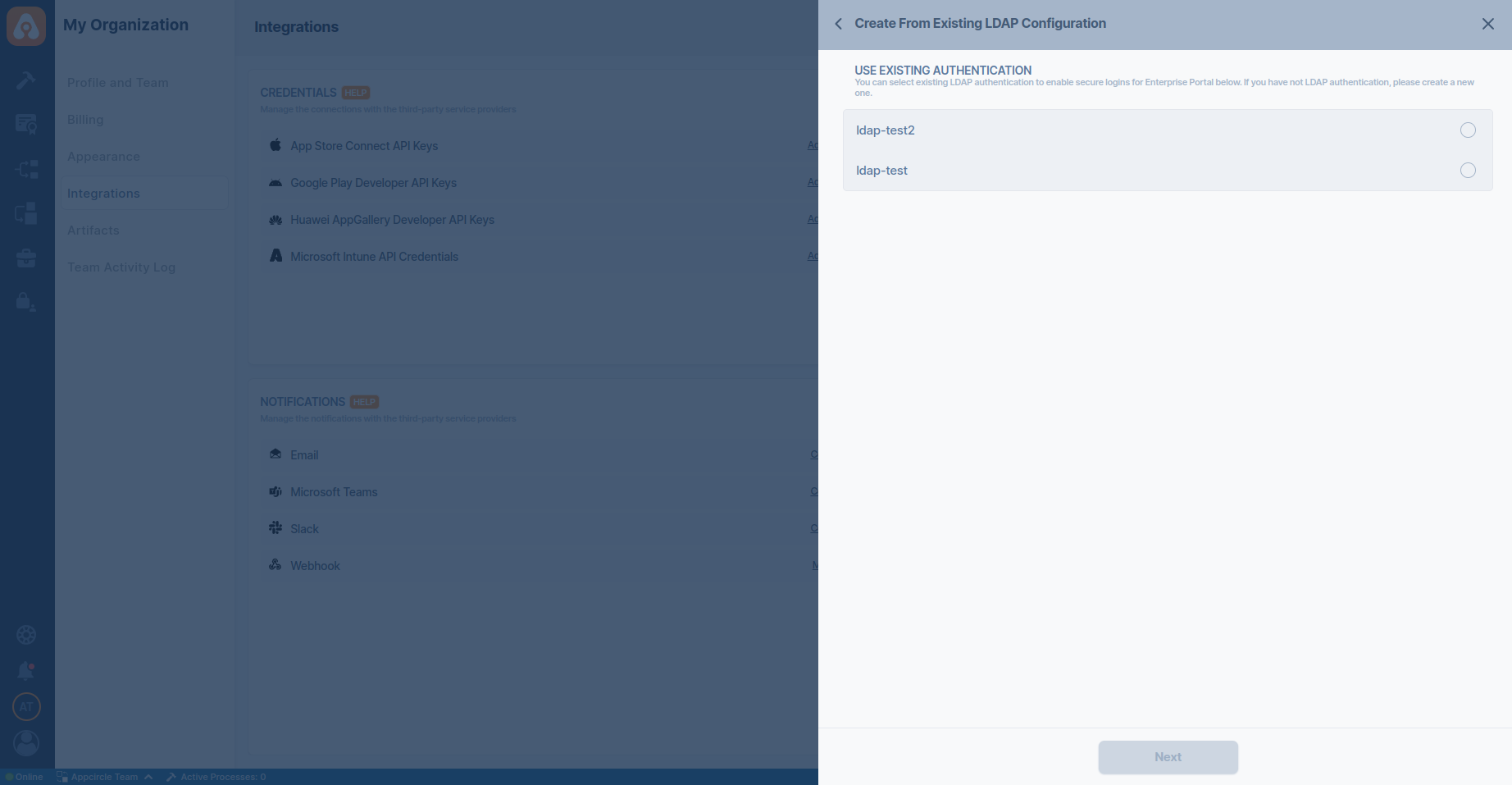
- On the Create LDAP Configuration screen, fill in the Name and Credential fields (all other values are prefilled). Customize as needed, then click Save.

The LDAP authentication configuration for Enterprise Portal can be enabled or disabled by clicking the “Activate LDAP” toggle.
Deleting LDAP Login
- To delete, go to the My Organization > Security screen and press the Manage button next to LDAP Login under the Authentications section.
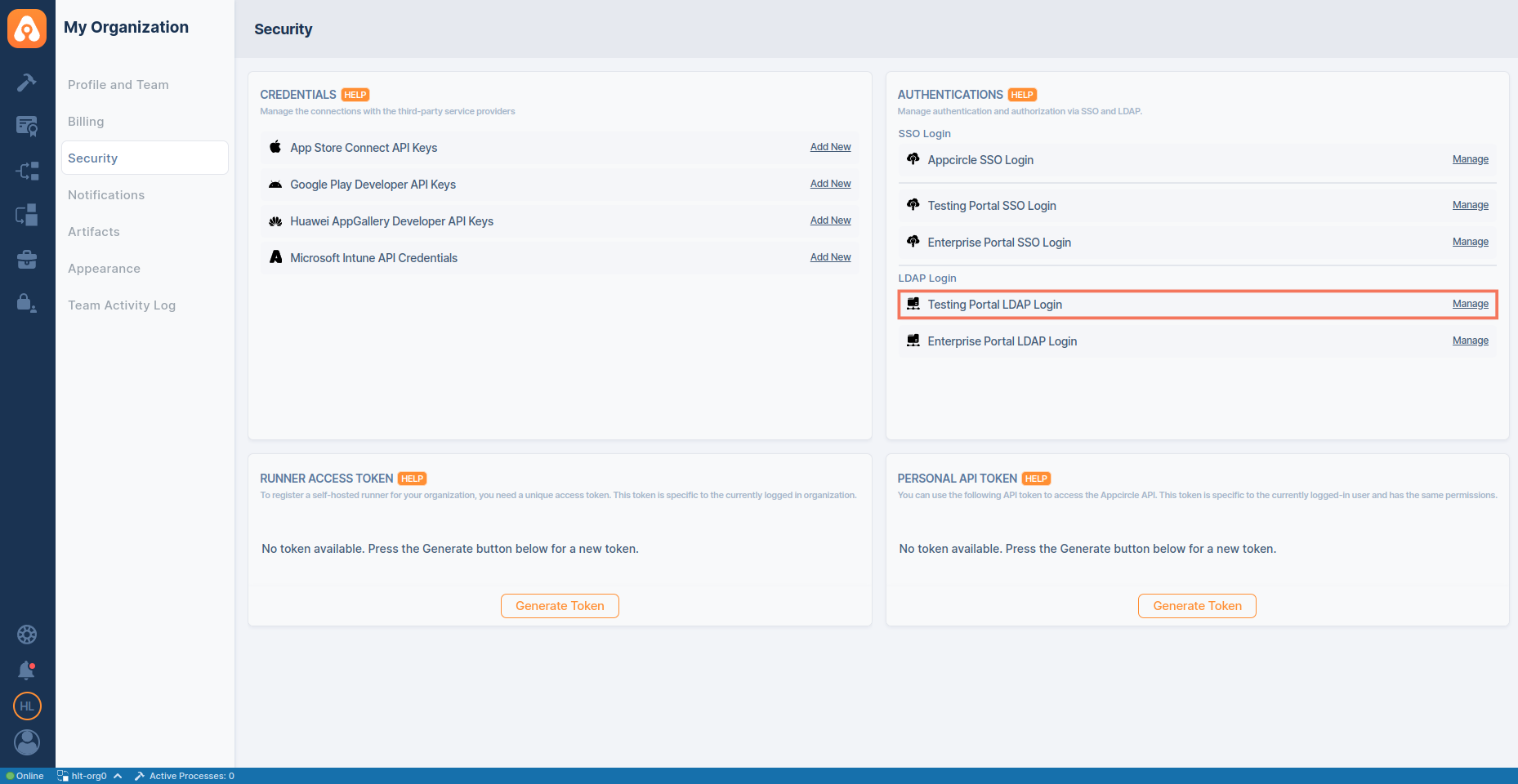
- Click the Remove button.
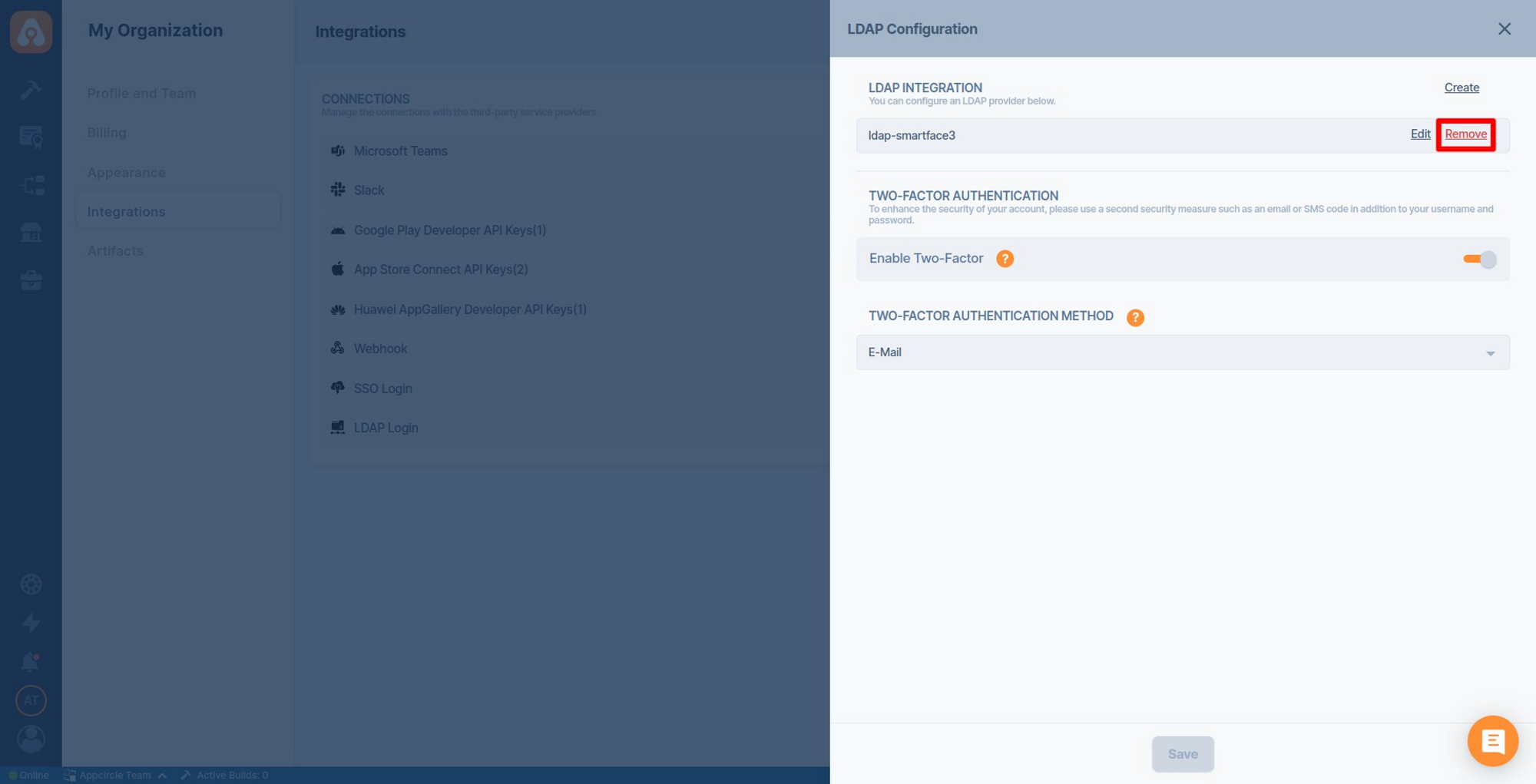
- Type the alias’s name to confirm deletion and click the Delete button.
